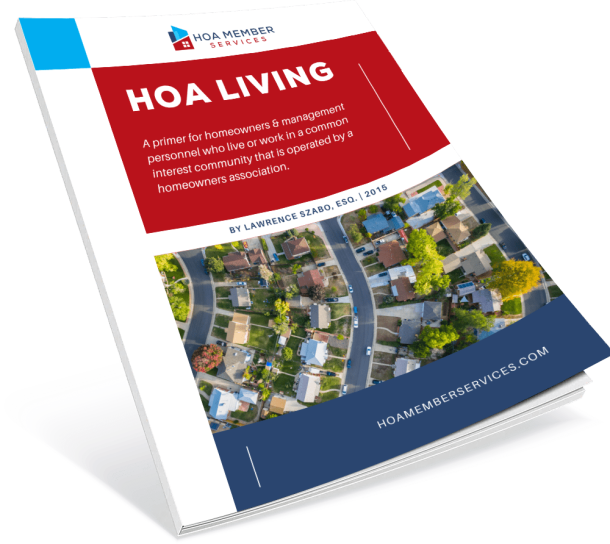Imagine living in a neighborhood where you get punished for leaving your bike outside. But, your neighbor does the same and nothing happens to them. You would be upset, right? This situation is called selective enforcement. It happens in some homeowners associations (HOAs). It can make people feel like they are being treated unfairly.
In this article, we’ll explore why selective enforcement is not always illegal, why it happens, and what can be done to make things more fair.

What Are Homeowners Associations?
HOAs are organizations. They manage residential communities, like neighborhoods or apartments. They are responsible for making rules that help keep the area nice and peaceful, which can also help keep property values high. These rules are written in governing documents that the HOA board must follow and enforce among all homeowners.
Each homeowners association is different, and the specific rules can vary from one community to another. These might include how you can decorate the outside of your house, where you can park your car, or how to handle trash and recycling.
The HOA board is usually made up of residents. They are elected by other homeowners in the community. The board makes sure that these rules are followed.
What Laws Do HOAs Need to Follow?
HOAs must operate under a combination of state and federal laws. At the federal level, laws like the Fair Housing Act prevent discrimination. It’s based on race, color, religion, sex, disability, familial status, or national origin. This means the HOA must enforce rules in a way that does not discriminate against these groups.
At the state level, laws vary. But, they generally give a framework for how HOAs should operate. This includes rules on how they can collect dues, enforce rules, and manage common areas. These laws ensure that HOAs treat all residents fairly and transparently. If a homeowner feels the HOA is not following these laws, they may have grounds to challenge the association’s actions.
What Does Selective Enforcement Mean?
Selective enforcement in an HOA context means applying the rules unfairly among residents. This might look like one homeowner being fined for not mowing their lawn, while the same violation by another community member is ignored. This kind of selective enforcement can make residents feel targeted. It creates a sense of injustice in the community.
This often happens when HOA boards lack clear guidelines on rule violations and enforcement. It also happens when personal biases influence their decisions. HOAs need to set procedures for monitoring and enforcing rules. This prevents selective enforcement and its problems.
Is Selective Enforcement Illegal?
Selective enforcement might not always be illegal. But, it can lead to legal issues if it violates anti-discrimination laws or the HOA’s rules. If homeowners believe they are being treated unfairly, they can bring legal action against the HOA. These lawsuits can argue that the HOA is not upholding its legal duty to enforce rules impartially.
However, proving selective enforcement in court can be challenging. Homeowners must typically show clear evidence that they were treated differently than others under similar circumstances. Legal battles can be costly and time-consuming, so it’s better for everyone if the HOA strives to enforce rules fairly from the start.
How To Deal With Selective Enforcement By an HOA
Homeowners who think they are victims of selective enforcement should first check the HOA’s official rules.
Further steps might include:
- Writing a detailed letter to the HOA. A letter can explain the situation, referencing specific rules. It’s also good to provide clear examples showing situations where enforcement was inconsistent.
- Bringing up the concern at the next HOA meeting. It’s helpful to inform the board beforehand so the issue can be added to the meeting’s agenda.
Often, selective enforcement is accidental. It reveals areas for the HOA to improve. They need to be more consistent and fair in applying rules.
Addressing Selective Enforcement Through Legal Action
Is suing an HOA for selective enforcement an option if discussions and meetings don’t resolve the issue, or if there seems to be discrimination? Yes, it is possible, but taking legal action should be a last resort. Legal battles can be expensive, and lengthy, and might worsen the situation.
A better approach is to express your concerns clearly and politely. Seek support from other community members. Discuss the issue calmly and constructively. This can often lead to a peaceful resolution that satisfies all involved parties.
Addressing Selective Enforcement Through Legal Action
Is suing an HOA for selective enforcement an option if discussions and meetings don’t resolve the issue, or if there seems to be discrimination? Yes, it is possible, but taking legal action should be a last resort. Legal battles can be expensive and time consuming, and might worsen the situation.
A better approach is usually to express your concerns clearly and respectfully, seek support from other community members, and discuss the issue in a calm and constructive manner. This can often lead to a peaceful resolution that satisfies all involved parties.
How Can HOAs Avoid Being Unfair?
Board members might find that managing an HOA involves more than they initially thought. It’s crucial to follow the existing governing documents closely and to avoid making exceptions.
Here are some methods to help ensure rules are applied consistently:
- Actively distribute the governing documents, especially to new homeowners, to make sure everyone knows the rules. Using digital methods to share files is particularly effective, especially after updates due to by-law changes or new board elections.
- Educate homeowners on what the common rule violations are, promote rule-following, and organize meetings or discussions to help new members understand these rules better.
- Adhere to the documented HOA enforcement procedures. Typically, this involves sending one or two warnings before issuing a formal violation notice. Board members must ensure they provide adequate warnings before imposing fines or restricting rights.
- Keep detailed records of all interactions related to violations, ensuring there is a clear paper trail that documents each step taken to address issues with homeowners.
- Implement a reliable system to monitor compliance, either internally within the association or by hiring an external HOA management company. Outsourcing can help minimize the impact of personal biases in rule enforcement.
If board members discover that any member of a previous homeowners association board did not enforce the rules as strictly as the governing documents require, clear communication is key. The board should inform homeowners about when strict enforcement will begin, giving everyone fair and advance notice.
How Can Management Companies Help a Homeowners Association?
To avoid any type of selective enforcement, HOAs should ensure all board members and residents clearly understand the rules. Regular training sessions and clear, accessible communication about the rules can help. Additionally, keeping detailed records of all violations and actions taken can support the enforcement process and the HOA’s efforts to be fair and transparent.
HOAs might also benefit from working with a professional management company. These companies can help ensure that rules are enforced consistently and professionally, reducing the burden on volunteer board members and minimizing personal biases that can lead to selective enforcement.
How Can HOA Member Services Help?
Whether you’re an HOA board member or a property owner within the community it’s important to be able to handle HOA disputes swiftly and efficiently. That’s where we come in. We offer everything from forms to guides to informational articles and more.
You can access all resources individually at a low cost or you can become an HOA Member Services member and access all materials for free under the plan you choose!
Conclusion
While selective enforcement of HOA actions may not always be outright illegal, they can lead to significant legal and social issues within a community. It’s in the best interest of an HOA to enforce rules consistently and fairly to avoid these problems. By doing so, they uphold not only the law but also the spirit of community that makes residential living enjoyable and fair for everyone.






